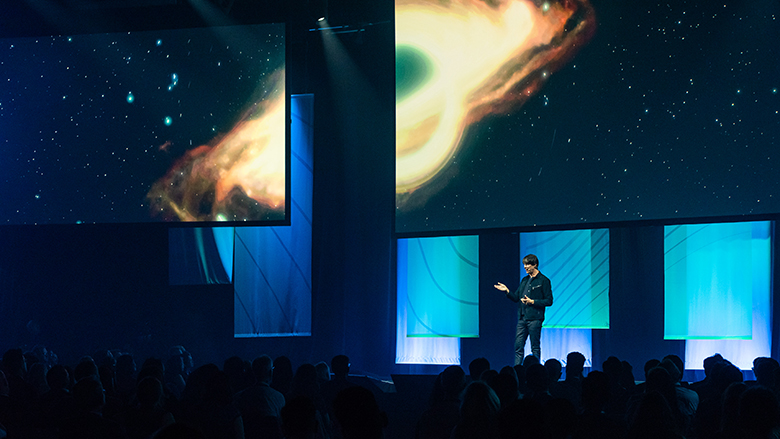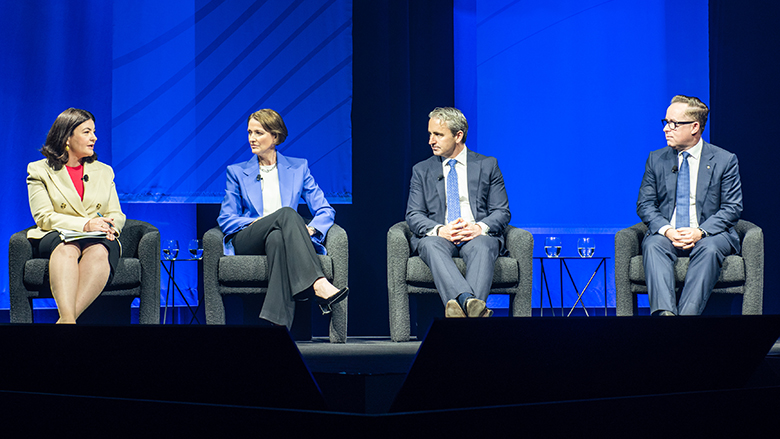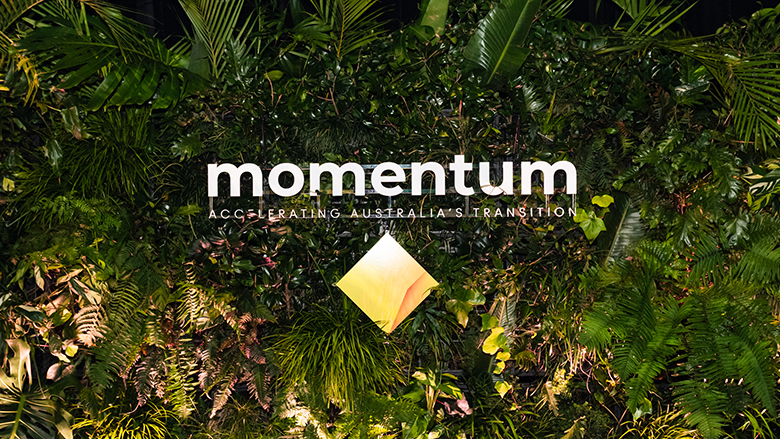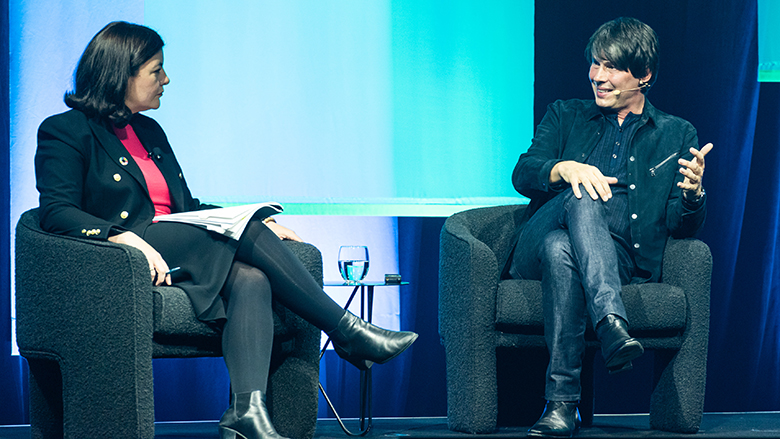Professor Cox’s speech was followed was a question and answer session with Sally Reid, Commonwealth Bank’s Executive General Manager of Global Client Solutions, who brought the session “back to Earth” by first asking him what humanity would do differently if we took science more seriously.
“I think we would invest more in knowledge,” said Professor Cox, explaining that knowledge provides not just perspective, but unimaginable potential benefits in the future.
No one, for example, foresaw the development of our modern electrical system “when people like Michael Faraday [the inventor of the electric motor and the dynamo] and others were fiddling around with magnets,” Professor Cox pointed out.
Ms Reid, stating space is seen as a “new frontier” in solving climate challenges, asked Professor Cox how he thinks space technologies can be applied to decarbonisation.
Professor Cox cited an interview he had with Amazon founder Jeff Bezos, who said he initially relied on pre-existing infrastructure — the internet and the postal service — to build the tech company. Bezos, who also founded spaceflight company Blue Origin, told Professor Cox that he wants to provide space infrastructure so the entrepreneurs of the future can operate there, perhaps one day moving polluting industries to other planets.
Ms Reid prefaced her ”philosophical” final question with the Oscar Wilde quote “A fool who knows the price of everything and the value of nothing”, asking Professor Cox for his perspective on intrinsic value versus extrinsic price.
“You can put a price on what happens if you completely eliminate our civilisation— you can cost out our civilisation’s worth monetarily,” said Professor Cox. “If it’s true that we’re [the only civilisation] in this galaxy, you don’t just eliminate just the economy of the galaxy, you eliminate meaning in the galaxy… I don’t know how to value that.”




